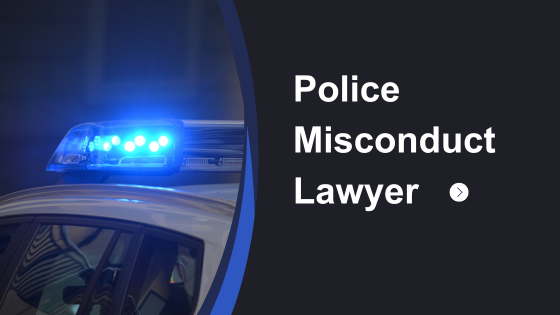Police misconduct cases are emotionally charged, politically sensitive, and legally complex. They involve powerful institutions, high-stakes litigation, and victims who often feel voiceless. In this environment, passion alone isn’t enough. The best police misconduct attorneys aren’t just outraged by injustice—they’re equipped to dismantle it. They combine legal precision, strategic thinking, and fearless advocacy to hold law enforcement accountable and deliver real results.
If you or someone you love has experienced excessive force, unlawful arrest, racial profiling, or any other form of misconduct, choosing the right attorney is one of the most important decisions you’ll make. Here’s what separates a great police misconduct attorney from the rest.
They Know Civil Rights Law Inside and Out
Police misconduct cases are governed by a web of federal and state laws, including Section 1983 of the U.S. Code, which allows individuals to sue government officials for violating constitutional rights. These cases often hinge on complex legal standards like qualified immunity—a doctrine that protects officers from liability unless they violated “clearly established” law.
A great attorney doesn’t just dabble in civil rights—they specialize in it. They understand how to frame a case that survives dismissal, how to challenge immunity defenses, and how to present evidence that meets the burden of proof. They know which precedents matter, which judges lean which way, and how to navigate the procedural landmines that derail weaker claims.
They’ve Litigated Against Law Enforcement Before
Not all personal injury attorneys are equipped to handle police misconduct. These cases aren’t about slip-and-falls or fender benders. They involve government entities, aggressive defense teams, and institutional resistance. A seasoned police misconduct attorney has gone toe-to-toe with city attorneys, police unions, and federal judges. They’ve filed motions, taken depositions, and cross-examined officers under oath.
Experience matters. If your attorney hasn’t litigated against law enforcement before, they may not be prepared for the tactics departments use to delay, deflect, or deny responsibility. The best attorneys anticipate these moves—and counter them with precision.
They Build Cases with Experts, Not Just Emotion
Police misconduct cases often require more than eyewitness testimony. Medical experts can verify injuries. Forensic analysts can reconstruct scenes. Use-of-force specialists can testify about what was reasonable—and what wasn’t. A great attorney knows how to assemble this team and use their findings to strengthen your case.
They don’t rely on emotion alone. They build a foundation of facts, expert opinions, and documented evidence that can withstand scrutiny. They understand that judges and juries respond to clarity, not chaos. And they know how to turn complex legal arguments into compelling narratives.

They Move Fast—Because Evidence Doesn’t Wait
Time is critical in police misconduct cases. Body cam footage can be deleted. Surveillance videos can be overwritten. Witnesses can disappear. A great attorney acts immediately. They file preservation requests, collect medical records, and document injuries before they fade.
They also understand the importance of controlling the narrative early. Police departments often release statements that frame the incident in their favor. A skilled attorney pushes back, demands transparency, and ensures your side of the story is heard.
They Don’t Flinch in the Face of Power
Police departments have deep pockets, political influence, and legal teams trained to protect their own. They count on victims backing down. That’s why your attorney must be fearless. They must be willing to challenge authority, question officers, and push for full disclosure.
But courage alone isn’t enough. The best attorneys combine boldness with discipline. They meet deadlines, file airtight motions, and stay focused on outcomes. They don’t get distracted by noise—they pursue justice with relentless precision.
They Treat You Like a Partner, Not a Case Number
Police misconduct is personal. It affects your health, your reputation, and your sense of safety. A great attorney understands that. They communicate clearly, listen actively, and keep you informed every step of the way. They don’t make vague promises or disappear after the consultation. They treat you like a partner in the fight.
Firms like Moseley Collins Law have built reputations on this kind of client-centered approach. Their police misconduct attorneys combine legal expertise with empathy, ensuring that victims feel heard, respected, and empowered throughout the process.
Conclusion: Choosing the Right Advocate
If you’re searching for a police misconduct attorney, don’t settle for generic credentials. Ask about their litigation history. Ask how they preserve evidence. Ask how they challenge qualified immunity. Your future may depend on it.
The right attorney won’t just represent you—they’ll fight for you. They’ll expose misconduct, demand accountability, and pursue compensation that reflects the harm you’ve endured. In a system that often protects power over people, precision is your greatest weapon. Choose an advocate who knows how to wield it.
Moseley Collins Law
980 9th St 16th floor, Sacramento, CA 95814
(916) 444-4444


